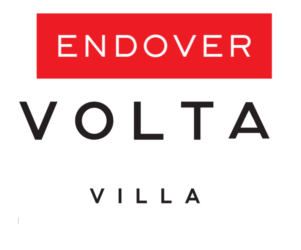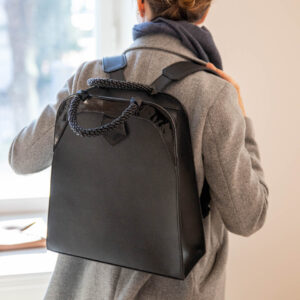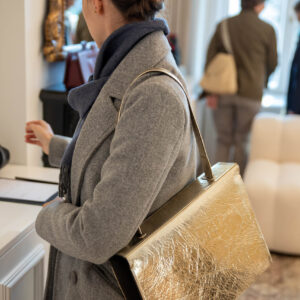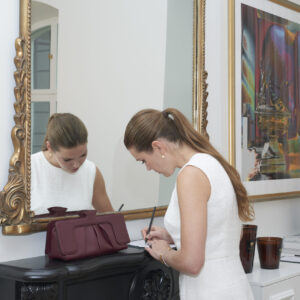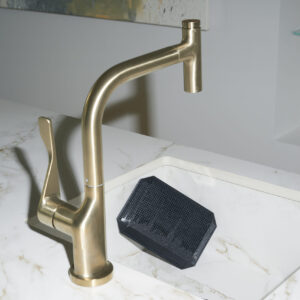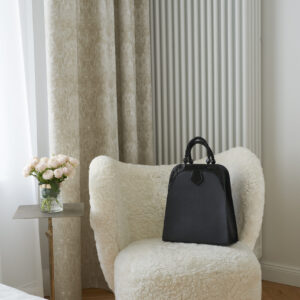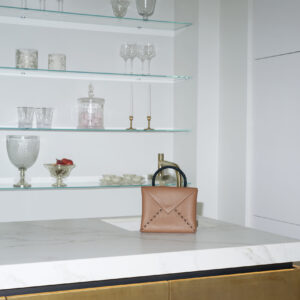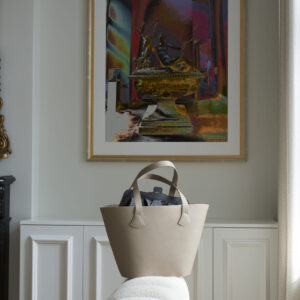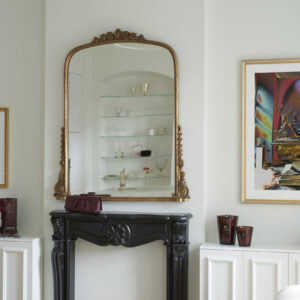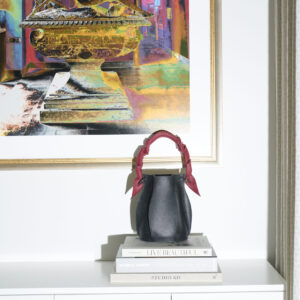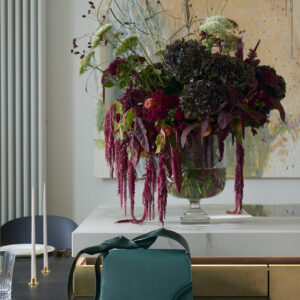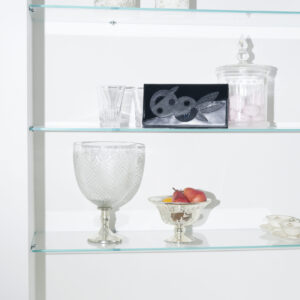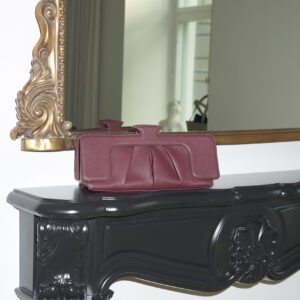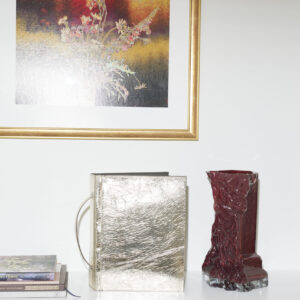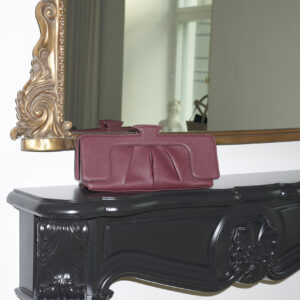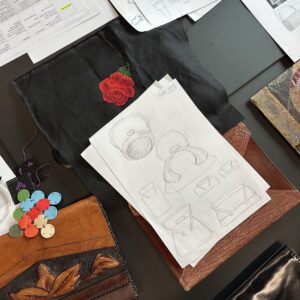
Photos from private and Tallinn City Museum collections. Collage by Jaana Päeva
The project focused on exploring experience-driven design principles that extend the product lifespan by using emotional attachment.
perceptions and product descriptions to understand how products are perceived and experienced, which experiences become long-lasting memories, what emotions trigger remembrance, and how memories affect emotional attachment to the product to integrate new knowledge into the design creation for potential product lifespan extension.
The project concentrated on the study of bags and their associated memories. Handbags were the focus of research as everyday objects that play a significant role in the owner’s life. The appearance of a bag is a public reflection of the wearer’s cultural and social attitudes, various roles, and everyday needs, while the interior is hidden, personal, and private. The bag has both functional and symbolic value, and its ambivalence and importance in the wearer’s daily life provided an appropriate background for collecting and applying memories as input for bag design.
This practice-based research started with collecting memories through questionnaires at the ʽEveryday Companions. Handbags 1900- 1950ʼ exhibition in the Tallinn City Museum and electronically. The campaign ran from September 8, 2023, to January 15, 2024, and sought to capture the essence of meaningful and memorable bags. The questionnaire focused on the emotions associated with bags, helping participants describe the bags in detail. Insights from 116 respondents allowed us to categorise the significant bags that emerged in memories into four main themes or types, each associated with specific characteristics. We named these themes based on the circumstances that made a bag important, either by style-related features (classic, special) or the emotions they evoked (bonding, secure).
In summary, the data revealed that classic bags were perceived as timeless, characterised by small dimensions and minimalist design. Their timeless style makes them cross-generational and unifying. Special bags, on the other hand, stand out from mass production and highlight the wearer. They feature unusual shapes, colors, contrasting details, or unexpected embellishments. As memorabilia, bags were associated with specific people, places, and visited locations. Gifted bags reminded owners of the giver and the circumstances of receiving them. Bags brought back from travels evoked memories of destinations, travel companions, and encountered situations. Bags perceived as bonding were characterized by the use of techniques and technologies specific to a region, era, or local context. Secure bags were seen as companions on journeys, helping to alleviate anxiety caused by life changes and providing comfort during difficult times. These bags shared a strong and stable connection with the wearer’s body, including backpacks and other body-hugging bags.
As a result of the second research phase, a collaborative bag collection shaped by the analysis of the collected data was launched in September 2024. The aim of the collection, consisting of nine prototypes, was to test whether and to what extent the audience associated the characteristics of a bag with the emotions that triggered the memories.
The bag collection made by Jaana Päeva, Kadri Kruus and Merle Visak was showcased as a part of the Satellite program of the Tallinn Design Festival Disainiöö from September 16 to 21, 2024. The exhibition, titled Déjà vu? was located at Volta Villa. More precisely, in a sample apartment of the 125-year old former headquarters of the Volta district. At the exhibition, visitors had the opportunity to examine the bags up close, try them on their back or shoulder, and share their opinions. Feedback was collected through a questionnaire, where each visitor could choose whether and which bags to evaluate. Over the six days of the Design Festival, a total of 205 opinions were gathered on all nine bags.
In the final stage of the project, we compared the collected bag-related memories, the design decisions based on them, and the feedback received on the collection. Four main themes became firmly established—bags perceived as classic, bonding, secure, and special—along with the identification of potentially meaningful characteristics that were either strongly or weakly associated with these themes and perceived similarly by the audience.
In conclusion, memories proved to be an inspiring material throughout the project. They provided highly diverse insights throughout the design process and, in the end, served as reflective data for evaluating the collection’s feedback. The involvement of three designers introduced multiple perspectives, as continuous discussion and diverse working methods shared and used in co-creation helped to deeply understand how memories and associations shape a product’s character and user experience.
The project results indicate that a conscious meaning-making process based on memories and experiences can help designers foster emotional attachment to products, thereby creating sustainable and long-lasting designs.
The project partners: The Tallinn City Museum and Kadri Kruus – Bags and Accessories
The project team: Jaana Päeva, Maris Rosenthal, Kadri Kruus, Merle Visak
The project is funded by: the Ministry of Culture’s Artistic Research Support Program in the field of culture and creative industries
Photos: Virge Viertek, Laura Palling
Thanks: Endover Kinnisvara
